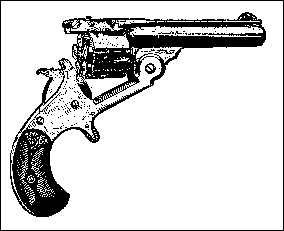The Making of a
Latino King
Reymundo Sanchez
(Chicago Review Press)

It's a gripping tale. It has a powerful sense of inevitability --- the we- To be a member of the Kings is to be accursed. The rules of the gang are constantly shifting and changing. What is right one day might be an offense the next day, to be punished by what they called "violating" --- you stand against the wall; members beat up on you for three minutes. You can't walk down the street without being recognized, perhaps shot at; and if you are with another person --- even a child --- that person may well die, too (it happened twice to Sanchez). Once you are in the gang, they don't let you out --- to leave is to invite murder, for departure is a fatal disloyalty. My Bloody Life tells us perhaps more than we might want to know about gang life. It's not just "colors" and dress and tattoos and what you say, how you say it, how you identify yourselves to others. There are the rules: defend your brothers with your life; avenge any wrong to any of them in the most brutal way possible; get a reputation as a killer --- it's the quickest method of getting one of the Queens in your bed; never rat on anyone, no matter how viciously you are questioned; when the police catch you and demand you identify the gang-member who did the most recent drive-by shooting, point at any member of any of the other gangs at random --- that's enough to get them sent to jail. Sanchez is a powerful writer, but he isn't much for philosophy. He accepts the raison d'être of gangdom: create a cell, evoke blood loyalty, know that the gang provides a home, companionship, a way out of poverty (he is surprised at the sophistication of their marketing --- buying guns and drugs in quantity, making a sizable profit in the markup, a true capitalist organization). But he only incidentally touches on the core truth of gangs: why they are allowed to exist at all. We all know that residents of the ghettos live in constant terror --- of getting killed, of losing family members to the endless warfare, of being robbed and beaten, of having their children get caught up in the violent world they've learned so well from the only teaching machine they have readily available: television. (Poorer children watch an average of ten hours a day, immersed in classic double bind messages: you must have this from the commercials, and here's how to get it from the "action" programs.) The cant is that police are ham-strung by laws (and the ACLU), which prevents them from wiping out gang activities. But it's at once simpler and more cynical than that. Gangs provide needed services for urban centers as a whole. Inner cities are lifetime holding tanks for minorities --- keeping them away from the suburbs (except in menial jobs). Escape is almost impossible. Powerful economic forces are in place to keep the poor and the minority in the war zone. Rents are cheap. If you are Latino or Black, the 'hood is where your families live. Poverty and unemployment are the rule, so those who want to survive must go into one of the accepted tax-free ghetto businesses: protection, dealing drugs and guns, procuring and selling stolen goods, prostitution. Thus the center of our cities is a jail carefully linked to other state-run jails (Sanchez points out that most of his gang activities were sanctioned by leaders serving time in the pen). It sounds bitterly cynical to suggest that gangs at war can help to reduce the minority population, but Sanchez seems to confirm this. He tells of the day that his gang purchased several cases of guns from two "big, burly men:" The white man laughed at my reaction when I saw the M-1 bullets. He reached into one of the boxes, pulled out a .357 Magnum, and gave it to me. He said that it was a strong gun with not much kick so I ought to be able to handle it. It was a gift from him to me. The gun was a little bigger than the .38 I had but weighed about the same. The bullets were also bigger. I couldn't wait to shoot it....I stuck the gun inside the front of my pants and left it there. A feeling of strength came over me. "Kill yourself one of them Dis-ci-ples, one shot will do it," the white man said. Sanchez then goes on to say, with heart-breaking innocence, I looked inside and saw them counting money. I noticed a sticker on the windshield of the Cadillac with the initials NRA in the middle, and the words National Rifle Association in a circle on the borders. So that's where all those guns come from, I thought. I wanted to join that group when I grew up. Sanchez has given us a powerful story, but leaves us hanging at the end. We know all too well how he got into this mess, but his escape covers less than a couple of pages. He merely tells us that when he left the Latin Kings (he was "violated out"), I dreamed of going to college and getting my degree. I have not been able to fulfill this dream yet because I had to support myself. The publisher's sheet informs us that "Reymundo Sanchez is the pseudonym of a former Latin King who no longer lives in Chicago." How did he escape? Where did he learn to read and write? How did one man move so far emotionally from being a murdering gang-banger to one who could put together a powerful document of his terrible, bloody former life?